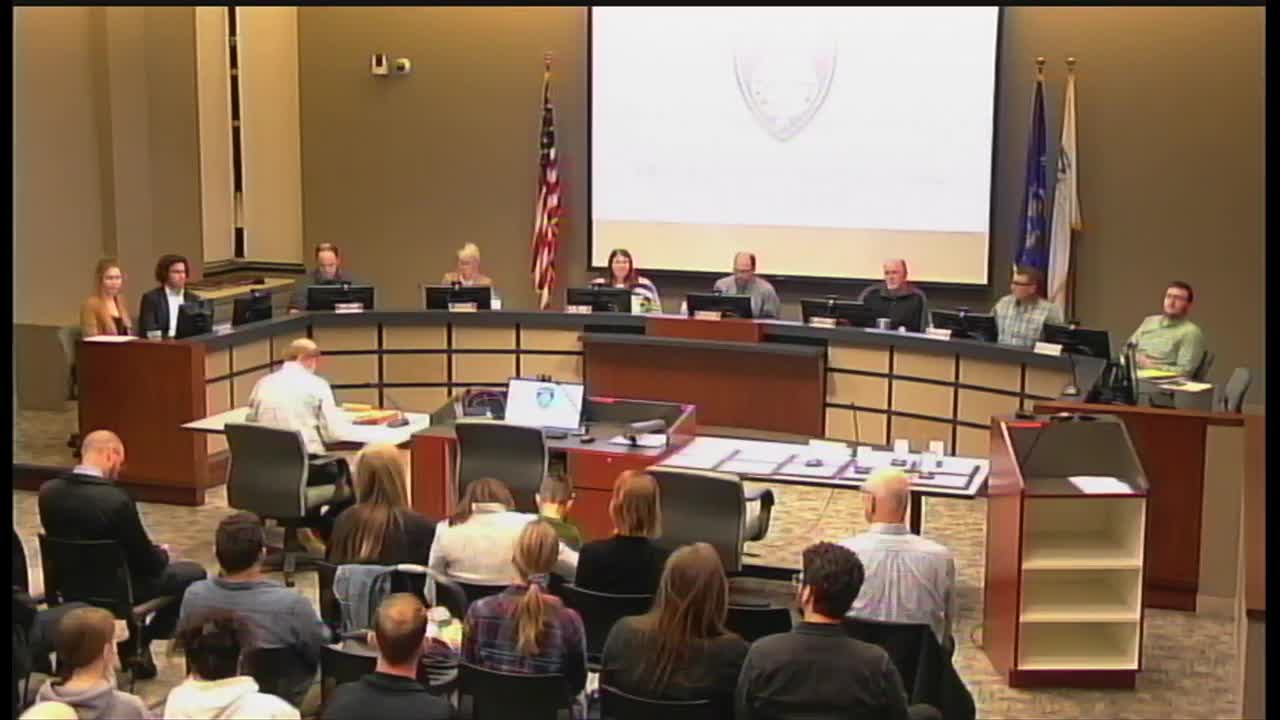Menomonee Falls police honor river-rescue officers; chief briefs trustees on staffing, crime trends
Get AI-powered insights, summaries, and transcripts
Subscribe
Summary
At the Oct. 20 Village Board meeting, Police Chief Mark Waters presented awards to officers involved in an August river rescue, recognized an emergency manager for flood response, and reported staffing levels, crime trends and planned data projects.
Police Chief Mark Waters presented departmental awards at the Menomonee Falls Village Board meeting on Monday, Oct. 20, recognizing officers who took part in an August river rescue and summarizing the department’s third-quarter operations and staffing challenges.
Waters described the Aug. 11 response during historic floods when officers and Fire Department personnel rescued two people who had fallen into the Menomonee River. “You can see the subject in the river right there floating, downriver,” Waters said while showing still images from the incident, and later told trustees, “we were very fortunate that nobody died that day.”
The board recognized Police Officer Matthew Curran with the department’s John Taylor Jr. Award for Valor; Curran was presented the award by Barb Taylor, widow of the department’s only officer killed in the line of duty. Several other officers received letters of commendation and life‑saving awards for entering the river and forming a human chain that recovered a 17‑year‑old and another adult. Waters read the list of award recipients: Police Officers Jennifer Paulson, Michael Schrader, Matthew Benson, Jackson Commerford, Andrew Weber, Zachary Tank, Jason Chiosch and Brian Zangle.
Why it matters: Waters used the awards presentation as the lead into a quarterly report that flagged short‑term staffing pressures and changes in crime patterns that could matter to residents and public‑safety planning.
In his quarterly report, Waters told trustees the department is authorized for 65.1 sworn positions but, as of Oct. 1, had 63.1 on the books and an estimated 57.1 fully trained and available on any given day after accounting for recruits in academy and extended leaves. He said the department has three officers in the recruit academy and several on extended military or FMLA leaves. The chief said the department recently hired three recruits (including two former police aides and a former New York City officer) and converted a support specialist position into a data analyst role.
Waters highlighted crime-data trends: Group A offenses were down 14 percent in the third quarter from the prior year, year‑to‑date group A offenses were down 12 percent, and overall enforcement activity in the third quarter was down 22 percent. He also flagged a sharp increase in weapons offenses year‑to‑date, from 23 to 42. “The vast majority of those weapons violations are related to traffic stops where the officers smell an odor of marijuana,” Waters said, adding that those odor‑based lawful searches often led to discovery of unlawfully possessed handguns.
Waters said the department lost three patrol vehicles during the floods; he described how rapidly rising water can total a vehicle. He also noted training, canine deployment and public engagement activity including the Police Citizens Academy, and he described ongoing planning for department remodeling, which Waters said has been pushed to construction in 2027 with occupancy in 2028.
Waters credited emergency manager Eugene Nyhart for his role in coordinating federal and state recovery efforts after the August flooding and said the village’s estimated damages from the storm exceeded $36,000,000. He said Nyhart’s coordination with FEMA, Wisconsin Emergency Management and Waukesha Emergency Management had been instrumental in securing federal aid for residents.
Waters also mentioned a planned data‑sharing project: he said the department is pursuing a state grant to participate in a regional data platform offered by Paragrind Technologies to improve information sharing with neighboring agencies.
Ending: The awards ceremony was followed by a short reception and Waters’ quarterly briefing. The board thanked the police department and moved to the consent agenda.
